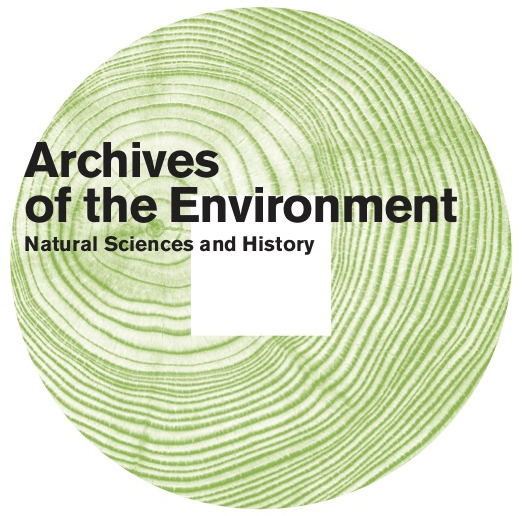
The irreversible effects of global warming raise new questions for the Humanities too: where did earlier societies stand in relation to their environment, and what impact did this have? The 2018 infoclio.ch conference focuses on the human and non-human traces that bear witness to our relationship with the environment.
The first session introduces the burgeoning field of environmental history. Historians present the story of the discipline, its crosscutting interdisciplinary connections and current trends.
Our environment’s past is not only a topic for historians. The natural sciences are also increasingly interested in learning how, and for how long, societies have been shaping their environment. In the second session, scientists will present their data and the methodology used to track the long-term impact of human activity on the environment.
The ecological footprint left by humanity over this period has now become so deep that there is talk of a new geological era. Should the natural sciences now come together with historical researchers in a new chapter of our planet’s history? In the keynote, renowned historian Dipesh Chakrabarty will outline his theses on the future of history in the Anthropocene era. The questions raised by his presentation will then be discussed in the round-table session.
Beetles, meteorological data, chronicles and soil samples: the third session focuses exclusively on the multitude of sources employed in environmental history. Examples taken from traditional archives, natural history collections and scientific databases will highlight the challenges of preservation, access and exploitation associated with archiving the various source types.
The conference will take place on Friday, 23. November 2018 in Bern.
Event cost: CHF 30.–/15.– for students. The conference fee includes lunch and coffee.
Simultaneous interpretation into English will be available during the conference.
The conference is fully booked and registration is now closed.
Program
| 8h45 | Registration |
| 9h10 | Welcome address – Matthieu Leimgruber (Universität Zürich) & Enrico Natale (infoclio.ch) |
Session 1: Introduction to Environmental History |
|
| Moderation: Melanie Salvisberg (Universität Bern) | |
| 9h15 | Jon Mathieu (Universität Luzern) – Sacred mountains in Europe ? Perception of the environment in transition to the modern age |
| 9h45 | Christian Rohr (Universität Bern) – Anthropogenic historical sources and their use for an interdisciplinary environmental and climate history |
| 10h15 | Jean-Baptiste Fressoz (Centre de Recherche Historique, EHESS) – The birth of historical climatology 1770 – 1830 |
| 10h45 | Coffee break |
Session 2: Natural Sciences as Historical Sciences ? |
|
| Moderation: Marcus Hall (Universität Zürich & Environmental Humanities Switzerland) | |
| 11h15 | Nicole Boivin (Max Planck Institute for the science of human history) – Archaeological perspectives on the Anthropocene |
| 11h45 | Oliver Heiri (Universität Basel) – Paleoecological environmental reconstruction : approaches, assumptions and examples |
| 12h15 | Lunch break |
Keynote |
|
| 13h15 | Dipesh Chakrabarty (Chicago University) – The Human in Natural and Humanist Histories: Towards a Fragile Rapprochement |
| Moderation: Marianne Sommer (Universität Luzern) | |
| 14h00 | Podiumsdiskussion | 14h45 | Coffee break |
Session 3: Environmental Sources and Archives : Preservation, Exploitation and Access |
|
| Moderation: Enrico Natale (infoclio.ch) | |
| 15h15 | Stefan Brönnimann (Universität Bern) & Franziska Hupfer (ETH Zürich) – Historical weather data : Climatological and historical perspectives |
| 15h45 | Christoph Scheidegger (WSL) – Natural history collections in Switzerland |
| 16h00 | Denis Reynard (Archives de l’Etat du Valais) – Environmental archives in the canton of Valais |
| 16h15 | Alexandre Elsig (Université de Fribourg) – Expert knowledge, amateur knowledge. Exploring sources in the history of industrial pollution. |
| 16h30 | End of the event |